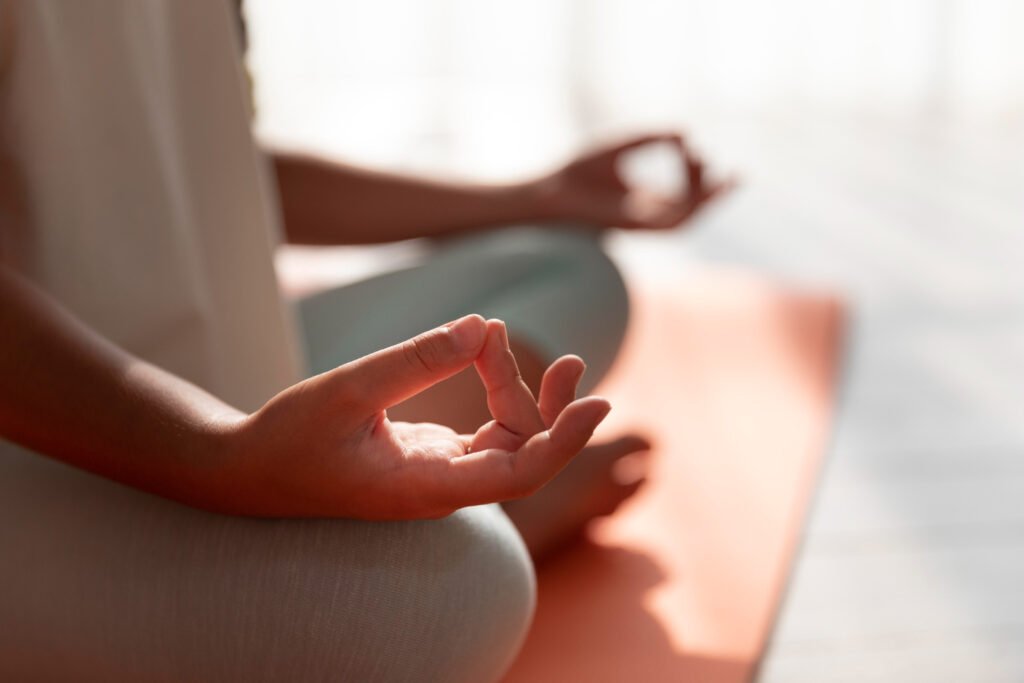In the serene pursuit of inner peace and mindfulness, many practitioners encounter a perplexing phenomenon: shaking during meditation. This involuntary trembling can be disconcerting and distracting, hindering the very tranquility one seeks to attain. However, fear not, for this article delves deep into the root causes of this shaking and provides invaluable insights on how to prevent it, empowering you to cultivate a more harmonious meditation practice.
What Causes Shaking During Meditation?
– Stress and Tension Buildup: Shaking during meditation often stems from the accumulation of stress and tension within the body. As we strive to quiet the mind and relax, the body may release stored tension, manifesting as tremors.
– Energy Movement: According to some spiritual traditions, shaking can occur as a result of energy movement within the body. This concept suggests that as we engage in deep meditation, energy channels, known as meridians, may become unblocked, causing a release of pent-up energy.
– Psychological Factors: Emotional upheavals or unresolved issues can surface during meditation, triggering physical reactions such as shaking. The mind-body connection is profound, and unresolved emotions can manifest as bodily sensations.

Insights from Experienced Meditators.
To gain deeper insights into this phenomenon, I had the privilege of speaking with seasoned meditators who have grappled with shaking during their practice. Here’s what they had to say:
– “I found that focusing on my breath and allowing the shaking to happen without resistance helped me move through it. Acceptance and surrender were key.”
– “Exploring gentle movement practices like yoga or qigong before meditation helped me release tension and reduce shaking.”
– “Connecting with a supportive meditation community provided reassurance and understanding, reminding me that I wasn’t alone in my experience.”
Scientific Understanding.
While spiritual and psychological explanations offer valuable perspectives, scientific research also sheds light on the phenomenon of shaking during meditation.
– Neurological Responses: Studies suggest that meditation can activate the parasympathetic nervous system, triggering relaxation responses. However, this activation may also lead to physiological changes, including trembling.
– Cortical Oscillations: Research indicates that meditation alters brain wave patterns, with certain practices associated with increased oscillatory activity. These changes in cortical oscillations could contribute to bodily sensations such as shaking.
How to Prevent Shaking During Meditation?
Now that we understand the potential causes, let’s explore practical strategies to prevent shaking and foster a more serene meditation experience.
– Prioritize Relaxation Techniques: Incorporate relaxation techniques such as progressive muscle relaxation or deep breathing exercises before meditation to release tension and promote bodily ease.
– Gradual Progression: If shaking occurs consistently during meditation, consider gradually increasing the duration and intensity of your practice. Start with shorter sessions and gradually extend the duration as your body acclimates.
– Mindful Movement: Engage in gentle movement practices like yoga, tai chi, or qigong to promote circulation, release tension, and cultivate bodily awareness before entering into seated meditation.
– Acceptance and Surrender: Instead of resisting or fearing the shaking, cultivate an attitude of acceptance and surrender. Embrace the experience as part of your meditation journey, allowing it to unfold without judgment or resistance.
Frequently Asked Questions.
Yes, shaking during meditation is a common phenomenon experienced by many practitioners. It often reflects the body’s natural response to stress release and energy movement.
In most cases, shaking during meditation is benign and transient. However, if you experience persistent or severe shaking accompanied by other concerning symptoms, it may be advisable to consult a healthcare professional.
Some spiritual traditions interpret shaking during meditation as a sign of energetic shifts or spiritual awakening. However, interpretations vary, and it’s essential to discern what resonates with your personal experience.
Bottom Line.
Shaking during meditation, though initially unsettling, can be reframed as a natural expression of the mind-body connection and the profound transformations occurring within. By understanding its potential causes and implementing practical strategies for prevention, you can navigate this phenomenon with grace and deepen your meditation practice with newfound resilience and insight. Embrace the journey, shake off the doubts, and journey towards inner peace and serenity.

 Workout
Workout
 Meditation
Meditation





 Contact Us
Contact Us





